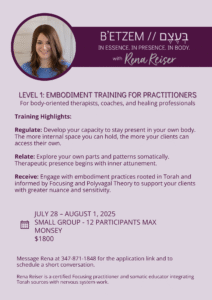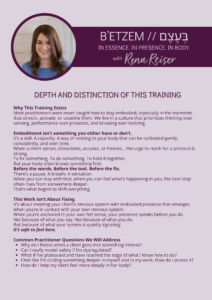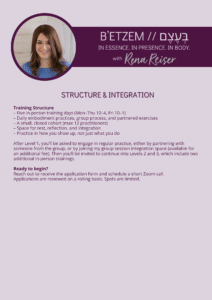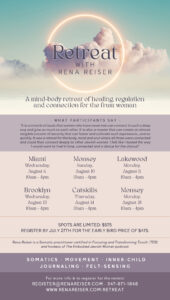Inner work isn’t supposed to feel this hard
Why Compassion Can Feel So Inaccessible
Previous generations were so focused on survival that they didn’t have the bandwidth to focus on their emotional worlds. That meant children were often raised without being modeling compassion because there was no space for it. Not time-wise, and not emotionally.
As a result, many of us grew up without receiving much compassion. So when it comes time to call on compassion, especially in inner work, when we’re asked to be there for our parts, it’s so much harder to access.
When Compassion Is Just Another Empty Word
A lot of the common advice is to “think of someone you do feel compassion for.” Maybe a friend or your child. But for someone who was never shown compassion, they often don’t even know what that feels like. And honestly, many women also carry resentment toward their children, so even that access point isn’t always available.
What I want you to know is that compassion isn’t just a feeling you try to conjure. Compassion is really about understanding what the underlying need is. That’s how we access it, by taking a step back and seeing the broader picture.
The Power of Naming Needs
I’ve seen it happen again and again: when either I name the underlying need, or a client who’s familiar enough with the language of needs can name it herself, it touches something really deep inside. And when it touches that place, something shifts, and suddenly, compassion becomes accessible, because it became alive.
So we can start with something basic and simple that someone may already be doing during their day: why they feed themselves, or take a walk, or yell at their kids, or go to work. Any of those things can be a doorway. If we can identify the one-word, universal underlying need beneath it, we open the door to compassion.
Healing Doesn’t Have to Be So Hard
I want to challenge the idea that doing inner work is “hard.” Yes, it can be painful. Yes, we touch places that are vulnerable or long-ignored. But why should it be so hard?
I want people to feel relief, to know that there is a way to do this work that’s not about striving. That can actually be a relief. It may hurt at times, but it shouldn’t feel like pushing a boulder uphill. When we work in ways that allow us to meet ourselves instead of fix ourselves, it doesn’t have to be so hard.
Accessing Menuchas Hanefesh isn’t hard.
I Didn’t Know What Compassion Felt Like
I can think of many times when I was “supposed” to access compassion and couldn’t. My inner critic was having a party; it just took over. Anytime I tried to access compassion, it hijacked the process.
We Need a New Way In
Real support in those moments might have looked like finding a way around it. If so many people are struggling to access compassion, then maybe we’re going about it the wrong way.
Maybe there’s another path. One that doesn’t start with, “Be compassionate.” Because for people with strong inner critics, that becomes yet another thing to fail at.
We need approaches that can circumvent the demand to feel something we’ve never felt and instead help us arrive there naturally, through the back door.
Why I Don’t Ask Clients “Can You Feel Compassion?”
I don’t like yes-or-no questions like “Can you feel compassion for this part?” That immediately pulls a client back into their head: Can I? Should I? Why would I want to?
It gives their inner critic a golden opportunity to jump in.
Instead, I model compassion by staying present. By guessing their needs. By wondering with them what might be going on inside. By asking what they might be needing. That’s what helps them access it, without forcing it.
Compassion Comes From Being Understood
When I wrote the post after the 12-day war with Iran, the one that went viral, that women all over shared with hundreds or thousands of others, the reason it resonated wasn’t because I said anything so profound or revolutionary. It was because women felt understood. They felt witnessed.
That’s what compassion is: being able to name what someone else is needing or what we ourselves are needing. And when we do that, we tap into compassion. That’s how we connect to Self. To our Neshamos, our pipeline to provide our Nefesh with whatever it is needing. When we can show ourselves that we understand what we’re needing, something inside softens. That’s the entry point.
If This Resonates…
if you’ve ever found yourself wondering why the usual inner work tools don’t seem to land, or why compassion feels like a foreign language, perhaps you need a different entry point.
This is what we explore in both my facilitator training and retreats: a gentler, body-based approach to healing that doesn’t rely on forcing feelings or bypassing what’s true. Instead, we meet ourselves where we actually are, and something begins to shift from there. If you’re ready to explore what that can look like, I’d love to have you join us.
You can learn more about the training and retreats on the flyers below.




